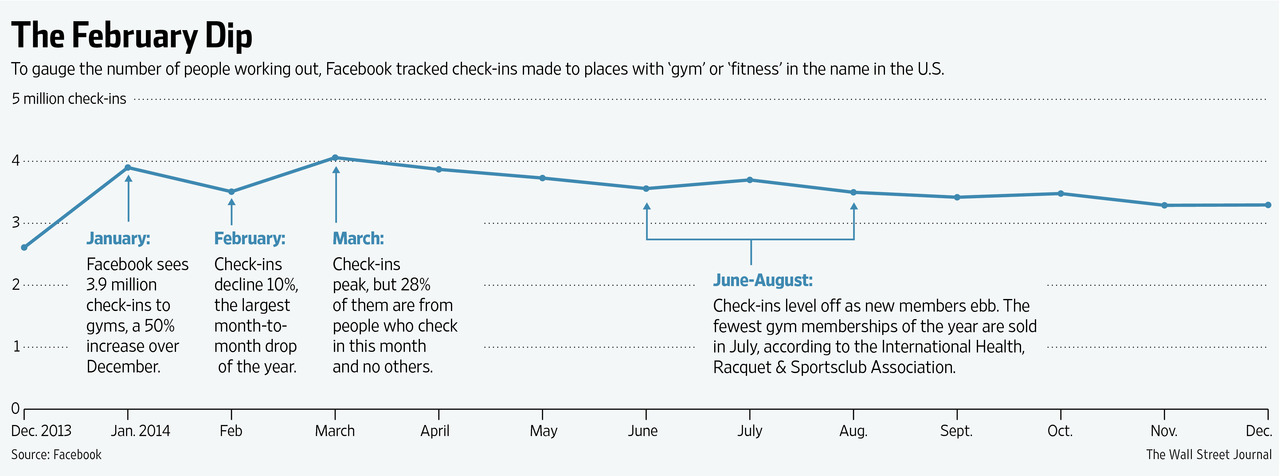Most people lose energy and enthusiasm for their New Year’s resolutions starting in late January. After the initial decline starts, the trend bottoms-out around the first of February.
As a manager, there’s little you can do to keep this phenomenon from a happening. The strong forces of human nature drive this behavior.
However, you can help some people pick themselves up at the bottom of the dip and start a slow and steady march towards better performance for the remainder of the year.
One of the keys to this process is understanding the nature of habits. We touched on this topic last week, and covered it in detail in a previous WorkPuzzle. Today, we’ll discuss three more ideas on how you can sail through the February dip in performance.
Disconnecting Goals from the Calendar
Rachel Bachman, writing in the Wall Street Journal, reports:
People who falter on their resolutions in January don’t necessarily wait a year to start over. Last year, gym check-ins on Facebook in March surpassed even those for January…. The check-ins leveled off in the summer and bottomed out in November…
One theory about the increase in March check-ins is the motivation to get in shape for spring break vacations.
It appears many of the people who emerged from the February dip quickly got focused on a new goal. Notice the new goal is not necessarily connected to the calendar. Yes, spring break is in March, but it’s really just a future, self-imposed, deadline they are trying to reach.
Help those you manage to quickly focus on a new goal when their New Year’s resolutions don’t work out as planned.
Don’t Talk About Goals with Peers
Bachman’s next suggestion is counterintuitive.
[Researchers] concluded in four separate studies of students that the public airing of identity-related intentions—like a New Year’s resolution to get in shape—actually can hinder progress.
One of the [studies cited involved] law students. Those [students] who told others about their intentions—like reading law periodicals regularly—said they felt closer to becoming a lawyer than those whose intentions stayed private.
The act of making their intentions public gave them a premature sense of completion, the researchers concluded.
In essence, feeling a sense of accomplishment normally propels individuals to stick to their goals. Broadcasting your intentions to others leads to the “premature sense of completion” and real-life inaction.
It’s better to keep goals private or just reveal them to one trusted friend or mentor.
One-on-One Accountability
For many of your agents, you’re the trusted friend or mentor. While there is a level of complexity to a robust coaching relationship, Bachman reports simple accountability can also be quite powerful:
A study by Stanford University found that people who received regular phone calls about physical activity were exercising significantly more six months later than people who received no calls.
There are numerous other studies and anecdotal stories in Bachman’s article, but they reinforce the same point: Knowing someone is going to ask about how you’re sticking to your goals is a powerful motivator.
As you see those you manage become disconnected and discouraged about their New Year’s resolution, apply these simple techniques. Getting someone focused and motivated towards a new goal is the best work you can do as a leader.
Questions or Comments? Reply to your WorkPuzzle subscription email.
Didn’t get the WorkPuzzle email? Subscribe below. We promise not to share your email with others or use it for any other purpose but delivering WorkPuzzle notices.



